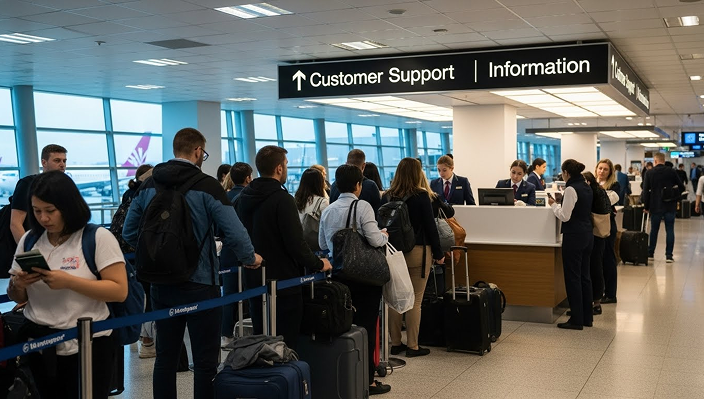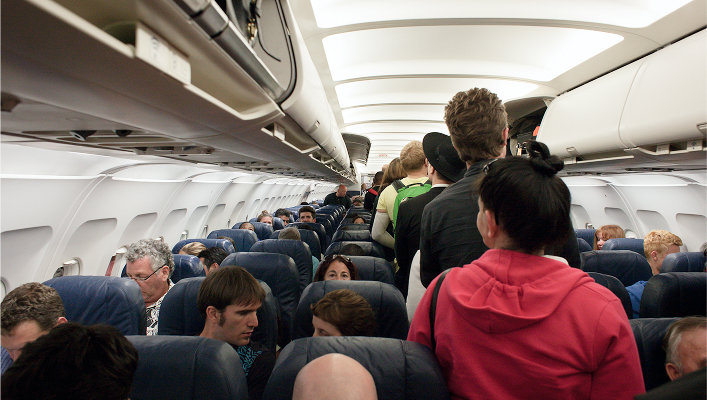Managing corporate travel expenses while ensuring a smooth experience for your employees is a balancing act that requires well-crafted travel policies.
At AllFly, we've streamlined this process, allowing companies to set policies tailored to specific flight durations. This guide will walk you through the key considerations and best practices for setting up your company's travel policies.
Configuring Travel Policies by Flight Duration
AllFly’s platform allows you to establish travel policies based on the duration of flights, offering flexibility that ensures your employees travel comfortably while staying within budget constraints. Here’s a general recommendation to start with:
- 0-4 hours: $500 cap, economy class
- 4-6 hours: $800 cap, economy class
- 6-12 hours: $1,350 cap, economy & premium economy
- 12+ hours: $1,750 cap, economy & premium economy
By tailoring your policies to the length of flights, you strike a balance between cost-effectiveness and traveler comfort. Additionally, we strongly advise against allowing your employees to select basic economy fares due to their restrictive conditions.
In the future, we are exploring the possibility of simplifying these fare brackets, potentially moving from four to three categories: 0-4 hours, 4-8 hours, and 8+ hours.
Everyday Business Travel vs. Event-Based Travel Policies
AllFly’s Quest platform provides the flexibility to create travel policies that cater to both everyday business travel and event-specific needs. This distinction is crucial because events often require unique considerations, such as accommodating larger groups or special travel arrangements.
- Everyday Business Travel Policies: These standard policies apply to regular business trips, ensuring consistency and cost control across all routine travel.
- Event-Based Travel Policies: For events, you can craft policies that are tailored to the specific requirements of each occasion. This may include different budget allocations, class of service preferences, or specific routing needs.
It’s important to note that event-level travel policies will supersede general everyday business travel policies, ensuring that the specific needs of your event take priority.
Using AllFly’s Forecast Tool for Budgeting
Accurate budgeting is essential for effective travel management, and AllFly’s Forecast tool can be a valuable asset in this process. The Forecast tool provides insights into median fares, offering a reliable benchmark for setting your travel budget.
Using the median fare as a guide helps you avoid the extremes of overly expensive or unusually cheap fares, giving you a realistic expectation of what you should be paying for flights.
Why You Should Avoid Using Google Flights for Analysis
While Google Flights is a popular tool for checking flight prices, it’s not ideal for corporate travel analysis. Here’s why:
- Basic Economy Pricing: Google Flights often highlights Basic Economy fares, which are generally unsuitable for corporate travel due to their restrictive conditions, such as limited baggage allowances and non-refundable tickets. The difference between Basic Economy and standard Economy fares can be significant, ranging from $50 to $100.
- Impact on Budgeting: Relying on Google Flights could lead to under-budgeting, as the prices shown may not reflect the true cost of travel for your employees.
For a more accurate analysis, we recommend using AllFly’s Forecast tool to ensure your budget aligns with actual corporate travel needs.
Budgeting for Large Groups
When managing travel for groups larger than 150 people, special considerations are necessary. Airlines typically sell the cheapest seats first, so if you’re booking for a large group, the initial prices you see online may not represent the final costs.
We recommend budgeting based on the 5th-7th cheapest fare available and adding 50% to account for price increases as cheaper seats sell out. For example, if the initial fare is $450, budgeting at $675 per ticket would be more realistic for large groups.
For groups of 200-300 or more, consider hosting your event near a major international airport to simplify logistics and reduce costs.
Communicating Your Company’s Travel Policy to Employees
Clear communication of your company’s travel policies is crucial to ensure that all employees understand the rules and expectations, especially regarding cancellations.
When an employee cancels a non-refundable ticket, the value often becomes an eCredit tied to their profile. It’s important to instruct employees that these eCredits should be retained for future business travel, not for personal use. By setting and communicating these guidelines upfront, you protect company resources and ensure compliance with your travel policies.
Conclusion
Establishing effective travel policies with AllFly enables you to manage travel expenses while ensuring a comfortable experience for your employees.
By configuring policies based on flight durations, using tools like AllFly’s Forecast, and budgeting appropriately for large groups, you can optimize your travel program for both cost and convenience.

.svg)
.svg)
.svg)













.png)








.png)
.png)


-min.png)
.png)
-min.png)
.png)
-min.png)
.png)
-min.png)
.png)


.jpg)
















.png)
.png)



